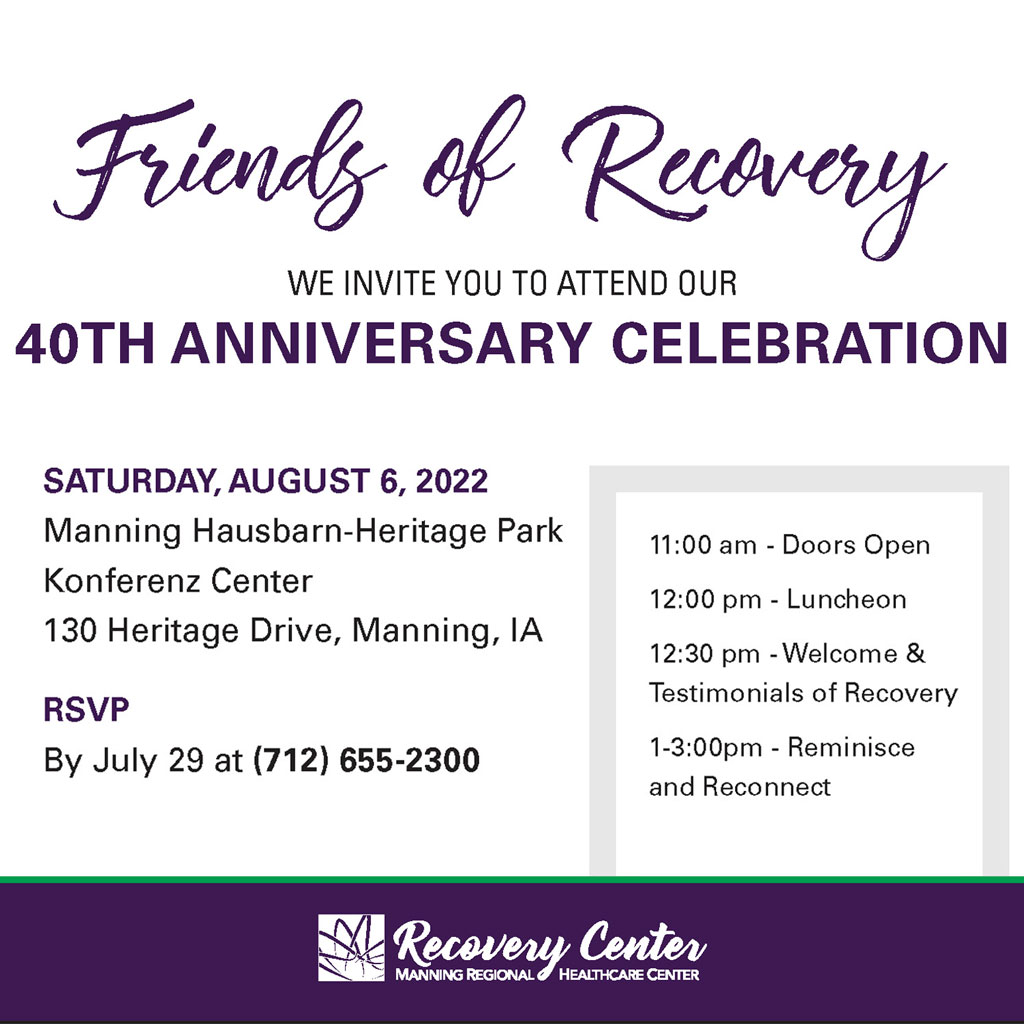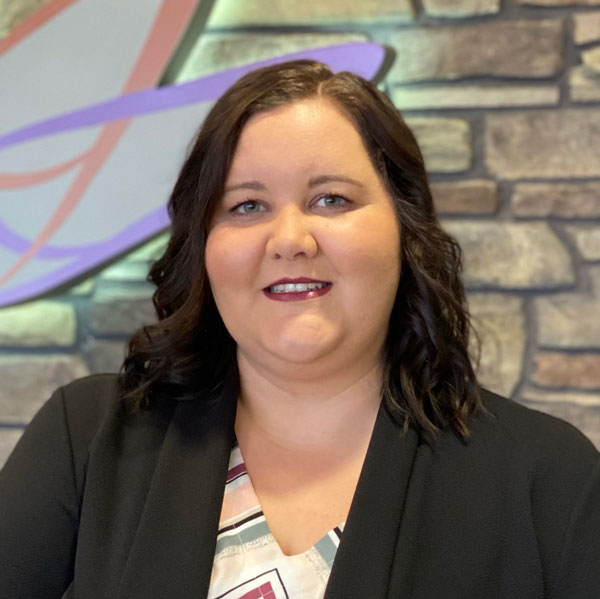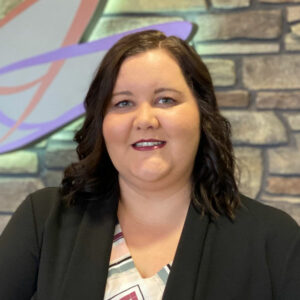The Recovery Center at Manning Regional Healthcare Center has been providing substance abuse recovery services in western Iowa for 40 years. To celebrate, all friends of recovery are invited to join The Recovery Center staff on August 6, 2022, at the Manning Hausbarn-Heritage Park Konferenz Center from 11:00 am – 3:00 pm. This free event will include a luncheon, welcome from the Recovery Center Director, testimonials of recovery, and networking among all in attendance.
Before the Recovery Center celebrates this milestone with the community, we wanted to reflect on the center’s history to see how far it has come, share what the Recovery Center is like now, and see what is in store for the future of substance abuse services in Manning.
The SAT Unit
In 1982, the Substance Abuse Treatment Unit, known as the SAT Unit, was established at Manning General Hospital after it became evident that substance abuse recovery services would fill an unmet need in the area. Since state funding was not an option, Health Resources, Inc. of Chattanooga, Tennessee worked with Manning General Hospital to establish the SAT Unit and an agreement was made for Health Resources to develop and manage the SAT Unit. The Iowa Department of Health issued the center a Certificate of Need, and clients were first accepted for residential treatment on January 17, 1983.
“The SAT Unit was the only hospital-based program fully functional with residential, outpatient, and support groups in Iowa at that time,” shared Denny Garvis, the Recovery Center director from 1990-2007. “We were also the first hospital-based program in Iowa to get a three-year licensure and 100% in licensure review. And those achievements had nothing to do with me, it was all the staff. Staff is key, and I had a tremendous team,” Garvis reflected.
Dr. Myer & Dr. McNerney were the beginning medical directors for the 12-bed SAT Unit. They initially started off with five staff members and provided residential and outpatient services. They also provided dual diagnosis/co-occurring disorder mental health services with Dr. Jerry Catron – treatment services that were groundbreaking at that time. The center was also able to host DMACC nursing students for 15 years through a DMACC nursing professor, Pam Garvis, so they could get a background in substance abuse and addictions, which was unheard of at the time. These experiences are still rarely offered in nursing education programs.
The Recovery Center eventually established outreach EAP and SAP programs in Atlantic, Carroll, Ida Grove, and Denison. When it came to outpatient services, Medicaid played a big role since they would only pay for outpatient services if the treatment center was within the hospital.
Eventually, many programs around the state started switching to strictly outpatient treatment based on low census, and the SAT Unit soon faced the same crisis. The numbers were very low for both kinds of treatment and at the time, the MRHC hospital board was questioning whether to keep the SAT Unit doors open.
“My philosophy was that if we do the right thing, we’ll get patients and that will keep the doors open. I argued that if we could sustain one year of operating in the red, we could survive, and the board went along with it,” Garvis said. “As other similar programs went to just outpatient, we remained residential, and thankfully it worked because a year and a half later our numbers started to improve. Bill Ohde was a strong hospital board supporter for us to get the one-year probationary program, and without his input & support, I don’t think the Recovery Center would be here today.”
The SAT Unit’s name was later changed to “Manning Family Recovery Center” to draw attention to the expansive family support program.
“The name SAT was always cold to me,” Garvis explained. “When we decided to change the name, we had a contest for the staff and that’s how we came up with Manning Family Recovery Center. It best identified what we did because the family component is key to recovery.”
After 33 years in a historic hospital on Main Street in Manning, the Center moved to its present location at 1550 6th Street in 2014 when Manning Regional Healthcare Center moved. The new space allowed for more natural light in patient rooms and space for indoor and outdoor recreation. Finally, to simplify outreach efforts, the center shortened its name to the Recovery Center in 2018.
As Garvis reflected on how the Recovery Center operated in the 80s, 90’s and 2000’s, he shared a few key takeaways:
“We are very proud of what has happened here over the years, but if there was anything in treatment that we could have improved on back then, it would have been working harder to help clients understand that you can still have fun and not drink and use. We always struggled with that,” Garvis said. “We tried to have as many social functions as we could to introduce people to the ‘real world.’ Our intent was to help them understand that 90% of the population drinks and uses, and that’s the world they’re going to function in when they leave treatment.”
While many things have changed and evolved within the Recovery Center, one thing that has unfortunately not changed is the stigma associated with substance abuse.
“To say that low income or minorities are the ones that need treatment is false,” Garvis said. “We have treated politicians, several mayors, doctors, lots of nurses, lawyers, administrators, ministers, priests, and paramedics,” – the number one profession of individuals the center currently treats.
Garvis went on to explain how the stigma and embarrassment that goes with addiction can deter people from seeking treatment services. He also points out the advantages of receiving treatment services at The Recovery Center in Manning.
“The credit to this place is that it is very private and secluded. Once clients get here, they understand that nothing is going to leave here without their approval,” Garvis shared.
The Recovery Center Now
The Recovery Center’s staff now consists of 11 full-time staff and five as-needed staff. The multi-disciplinary team includes the medical director, an administrative assistant, 24-hour nursing services, four licensed substance abuse counselors, two full-time and four part-time counselor techs, a nurse care coordinator, family therapist, licensed clinical coordinator, psychologist, and a director. The center also has a 16-bed capacity but can overflow into the hospital if needed. There are two people to a room and each room has their own bathroom and shower.
“We have never been empty, and we always have a significant waitlist. The average wait time right now is four weeks,” said Recovery Center Director, Taya Vonnahme, MSN, RN, ARNP, tCADC. “But if someone were to walk in right now, we’d find a bed for them. We’ll overflow as much as we have to. I won’t turn anyone away.”
Other than having additional space if needed, another main factor that differentiates Manning’s treatment program from others in Iowa is the fact that the Recovery Center is a department within MRHC, a critical access hospital.
“Being connected to the hospital allows us to easily access all possible modalities of care from lab, radiology, nursing, specialty clinic services, and more,” shared Vonnahme.
It also allows the Recovery Center to take patients who have extenuating medical backgrounds and several who have significant medical issues as they can be seen by specialty providers at MRHC during their stay.
The co-ed chemical dependency facility offers services such as detoxification, residential treatment, outpatient treatment and consultations or evaluations.
“Our services continue to change and grow,” shared Vonnahme. “Currently, we provide treatment at four levels of care from detox, residential, and three options of outpatient treatment. Everyone can benefit from one of the types of services and most clients follow a steppingstone path and will work their way down through their specific treatment plan.”
The Recovery Center bases treatment plans on evidence-based practices, incorporating therapies and strategies proven to have successful recovery outcomes for previous addicts. The 12-step framework and other therapies and services are utilized to facilitate the recovery process. The licensed counselors follow best practices by individualizing each treatment plan, so they are specific to each client’s needs and goals.
“For example, outpatient services can be varied based on how many hours a week someone needs,” explained Vonnahme. “We mostly focus on intensive and extended outpatient treatment each week. These levels are usually completed by someone after they finish a residential stay, but it does not have to be that way. There are outpatient clients who never complete residential treatment and that is sufficient for them.”
Recovery Center staff have adapted treatments to meet the most pressing or newly emergent addiction issues, from alcoholism to the influx of meth to the abuse of prescription painkillers. The main goal for clients is to take their first step toward healthy, drug and alcohol-free lifestyles.
The Future of the Recovery Center
As the Recovery Center continues to grow and evolve, they have big goals for the future of recovery services.
“Our team continues to grow in many ways. We have started offering problem gambling and prime for life services (Iowa OWI course) and are working to add additional services, but it takes time,” Vonnahme said. “I hope to be able to dedicate much-needed time to a prevention program. This work is greatly needed, and we are striving to bring it back.”
While it is a top priority to expand prevention and outpatient services, they also want to emphasize the importance of mental health education.
“There are not enough services out there for mental health or addiction so we are trying to do the best we can in the short amount of time we have with the people that come in for treatment,” Vonnahme said.
Fortunately, the Recovery Center has an overwhelming amount of support and assistance within the hospital. MRHC administration and the board of directors recognize that that the Recovery Center is a key service line and part of the long-term vision and strategy of MRHC.
“I have a very good administration backing me who trusts and helps me,” Vonnahme shared. “That makes a huge difference being able to do this job because my administration team is pretty understanding of some of the issues with insurance and realizing that we’re doing the best we can with what we’ve got. They’re supportive when I want to take a risk and will let me try new things.”
In addition to a supportive administration, board of directors, and a determined Recovery Center staff, the Manning community is also a strong advocate for the center.
“We are fortunate for the support we get and always have as well as the community we’re in,” Vonnahme shared. “I’m very lucky with the staff, volunteers and support we have. The only reason I can do this job is because of the team, not only my staff in the Recovery Center, but hospital wide with billing and financial, administration, and others. It’s amazing how many people it takes to keep something like this afloat and the communication and skills you have to bring together.”
To learn more about substance abuse services at the Recovery Center and celebrate the 40th anniversary, RSVP to the August 6th event by calling (712) 655-2300. For more information about the Recovery Center, visit www.manningrecoverycenter.com.

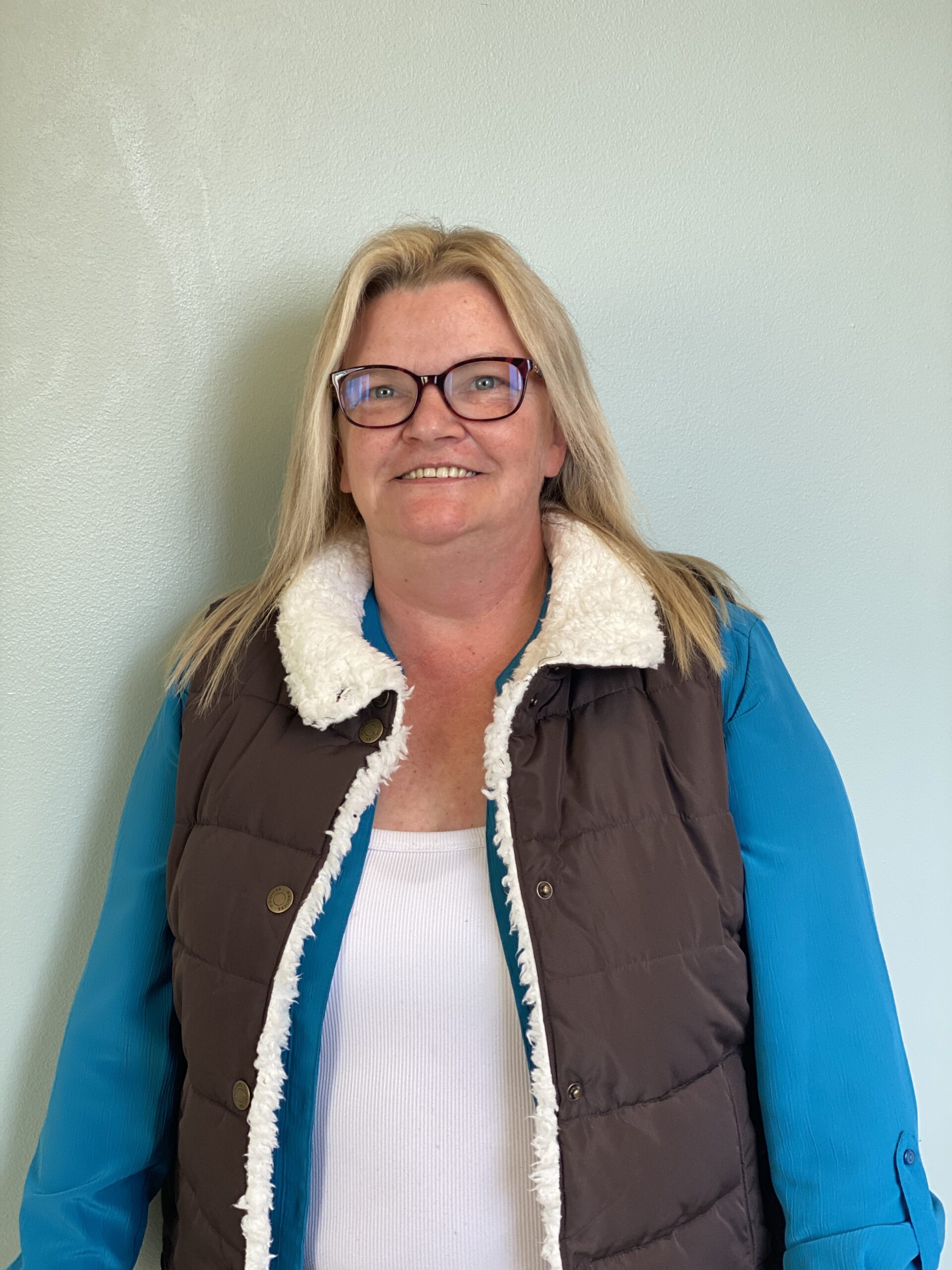
 Melinda Melby’s life took an unexpected turn, one that led her through darkness but eventually to recovery and transformation. Today, as an administrative assistant and intake coordinator at the Recovery Center at Manning Regional Healthcare Center in Manning, Iowa, Melinda is not only rebuilding her life but also extending a guiding hand to others on their own journeys to sobriety.
Melinda Melby’s life took an unexpected turn, one that led her through darkness but eventually to recovery and transformation. Today, as an administrative assistant and intake coordinator at the Recovery Center at Manning Regional Healthcare Center in Manning, Iowa, Melinda is not only rebuilding her life but also extending a guiding hand to others on their own journeys to sobriety.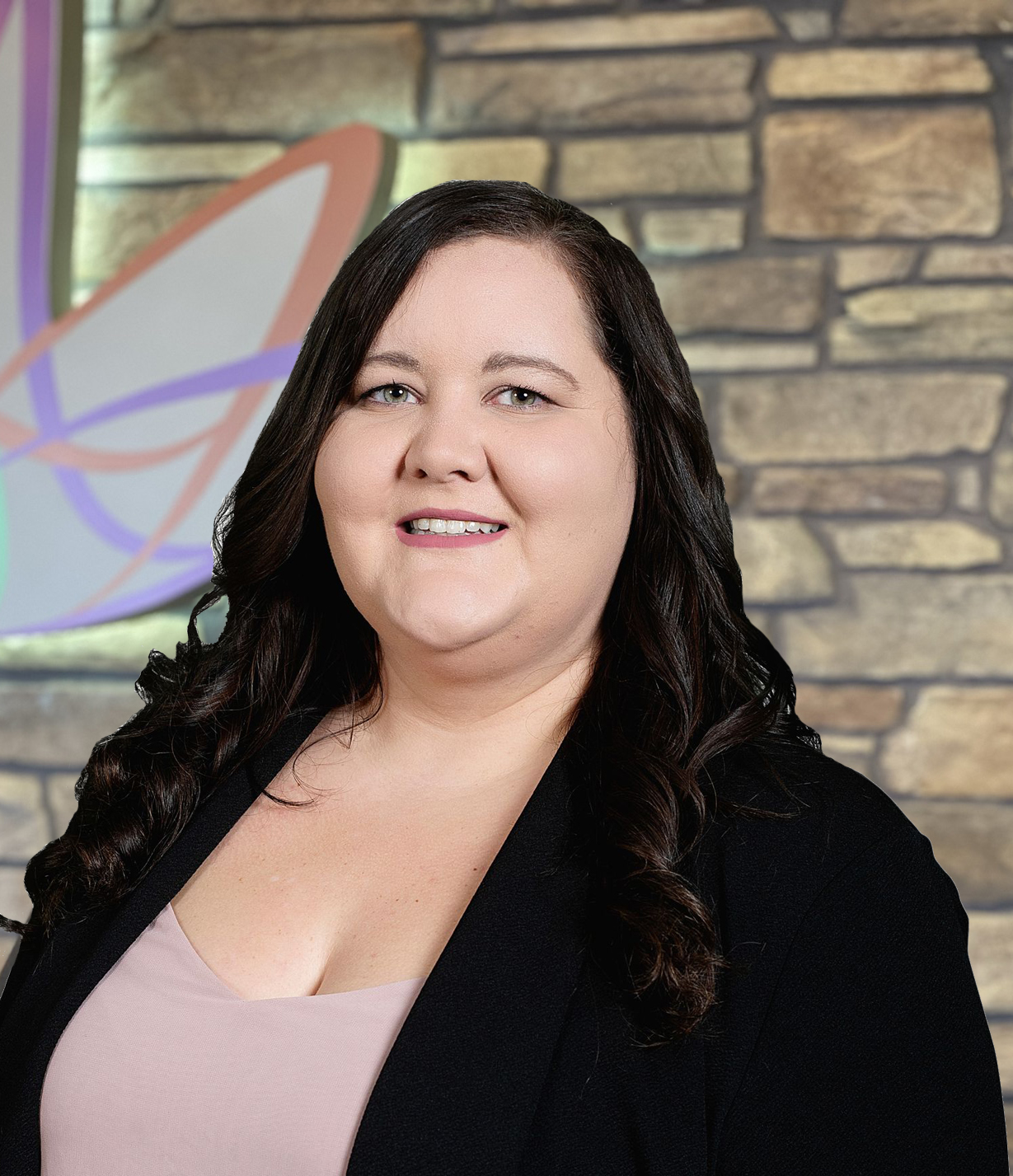
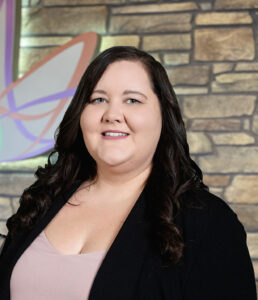 “The fundamental thing to understand is they have to come to their own decision about sobriety. You can’t make it for them,” advises Recovery Center Director,
“The fundamental thing to understand is they have to come to their own decision about sobriety. You can’t make it for them,” advises Recovery Center Director, 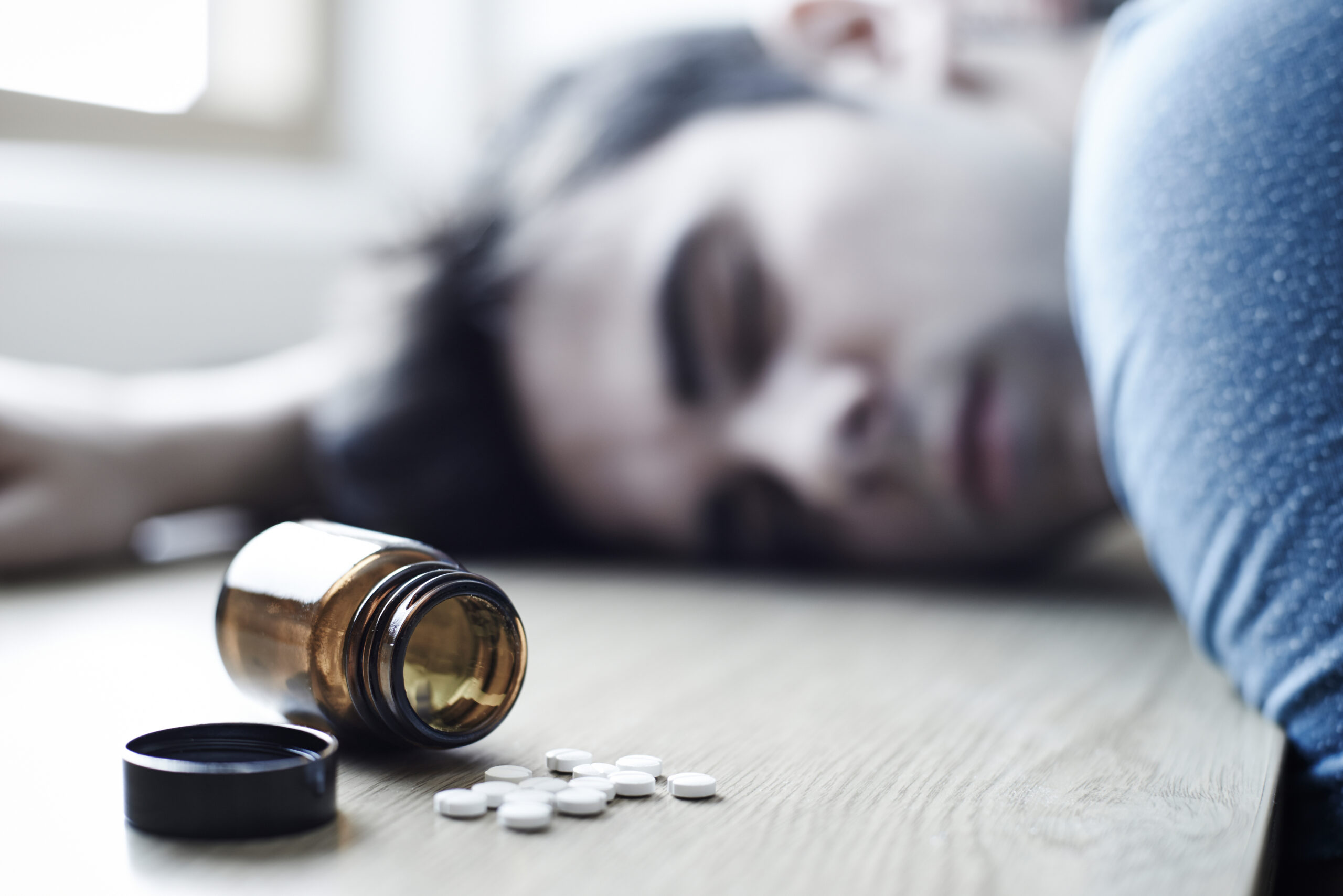
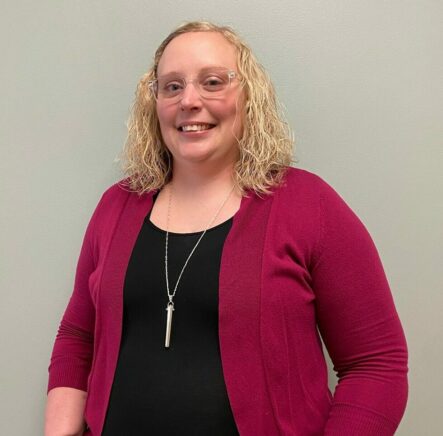
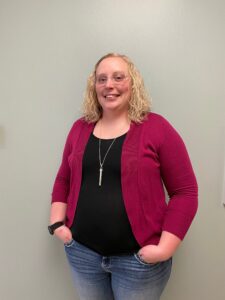 To address one of the primary health concerns affecting our rural communities, MRHC is expanding mental health services. Hollie Schechinger, a counselor in the
To address one of the primary health concerns affecting our rural communities, MRHC is expanding mental health services. Hollie Schechinger, a counselor in the 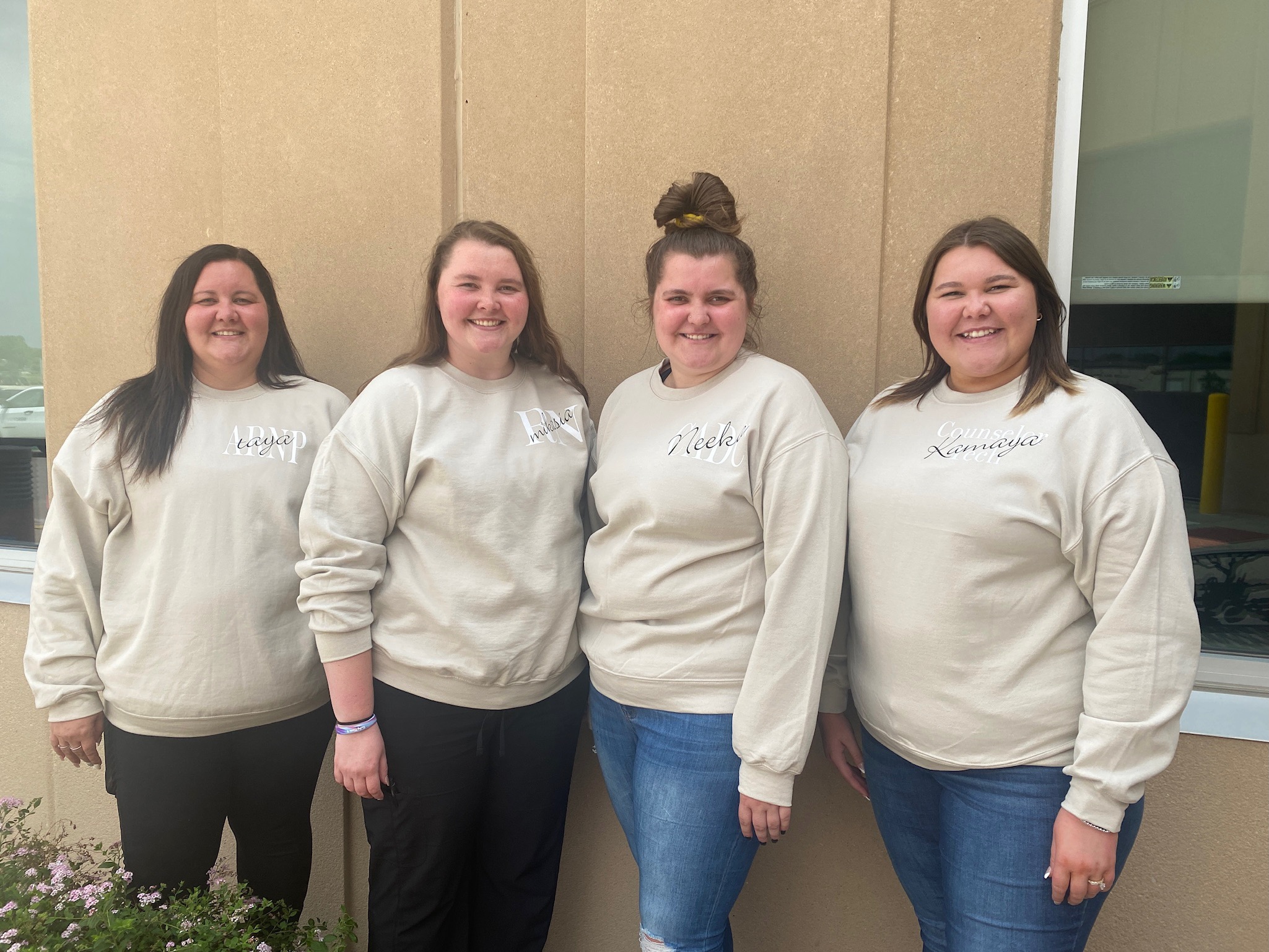
 Taya, the oldest sister, currently serves as the Director of the Recovery Center at MRHC. After becoming a CNA and working at the Plaza throughout high school, Vonnahme received her LPN from Iowa Lakes Community College in 2009. After transitioning to MRHC full time as a discharge planning nurse in 2011, she continued to add jobs to her title until 2015 when she applied to go back to school for her RN. Once she graduated with her associate degree in nursing, she transitioned to a house supervisor at MRHC and obtained her BSN from Walden University in 2018. In 2020, she earned her master’s degree as a Family Nurse Practitioner with support from the MRHC tuition assistance program.
Taya, the oldest sister, currently serves as the Director of the Recovery Center at MRHC. After becoming a CNA and working at the Plaza throughout high school, Vonnahme received her LPN from Iowa Lakes Community College in 2009. After transitioning to MRHC full time as a discharge planning nurse in 2011, she continued to add jobs to her title until 2015 when she applied to go back to school for her RN. Once she graduated with her associate degree in nursing, she transitioned to a house supervisor at MRHC and obtained her BSN from Walden University in 2018. In 2020, she earned her master’s degree as a Family Nurse Practitioner with support from the MRHC tuition assistance program.
 “My family is for sure my main support through my career choices, but my sisters are my biggest supporters. They are the ones I go to for any decisions or help I need along the way,” said Kamaya. “It was because of my sisters I got the opportunity to work at MRHC.”
“My family is for sure my main support through my career choices, but my sisters are my biggest supporters. They are the ones I go to for any decisions or help I need along the way,” said Kamaya. “It was because of my sisters I got the opportunity to work at MRHC.” “I wanted to help my community in a way that would make an impact,” said Neeka, CADC, a CNA, EMT, and counselor tech in the Recovery Center. Mikasia adds, “there are highs and lows when working in a small town. The lows hit a lot harder as these are the people we have grown up with or have watched grow up themselves. I care a lot for my community, and I hurt when we have a loss. But the highs are worth it. Being able to provide great medical care and seeing progress for our patients is very rewarding. I really enjoy that I can share these experiences with my sisters and that when people come in, they know they can count on one of the Jacobsen/Genzen girls.”
“I wanted to help my community in a way that would make an impact,” said Neeka, CADC, a CNA, EMT, and counselor tech in the Recovery Center. Mikasia adds, “there are highs and lows when working in a small town. The lows hit a lot harder as these are the people we have grown up with or have watched grow up themselves. I care a lot for my community, and I hurt when we have a loss. But the highs are worth it. Being able to provide great medical care and seeing progress for our patients is very rewarding. I really enjoy that I can share these experiences with my sisters and that when people come in, they know they can count on one of the Jacobsen/Genzen girls.”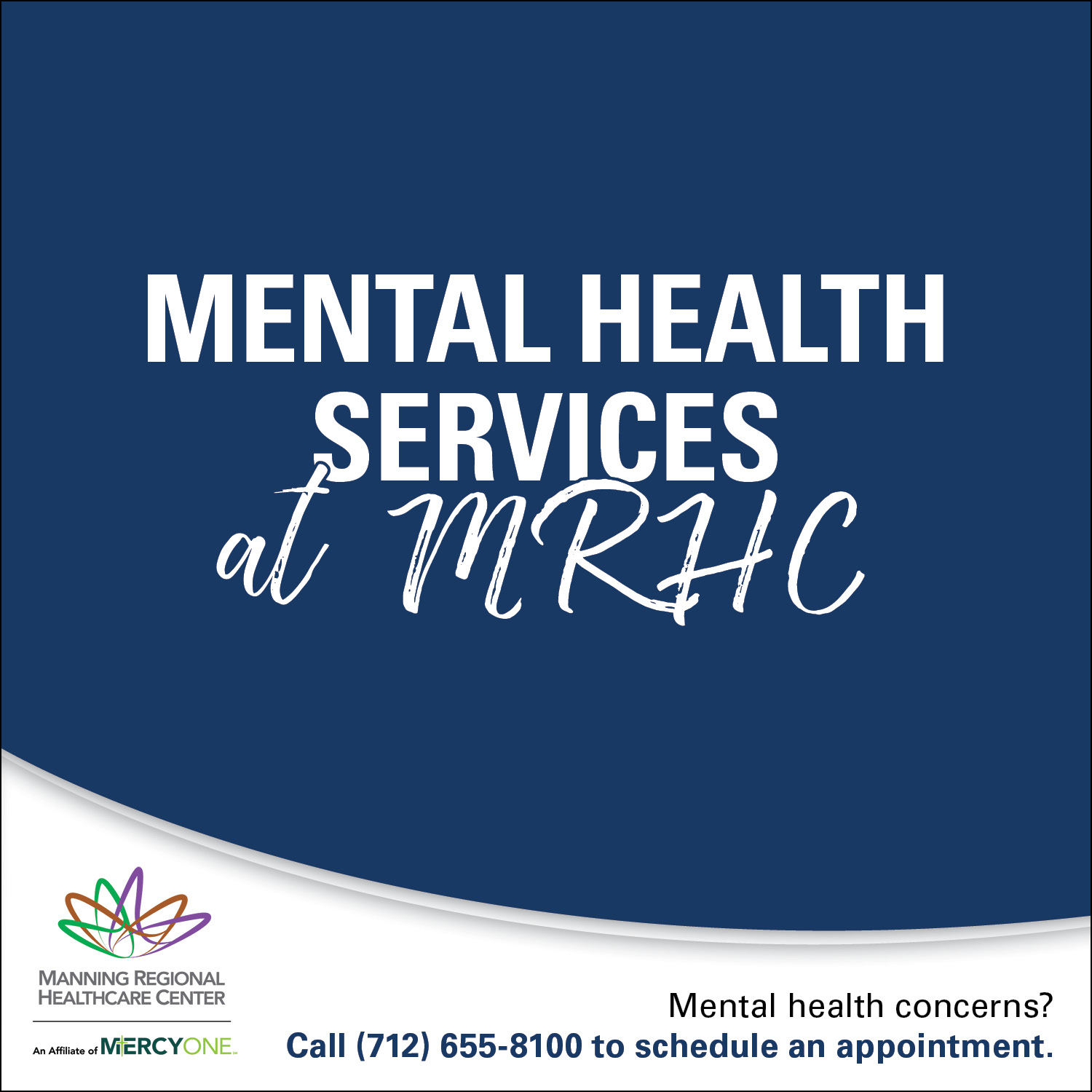
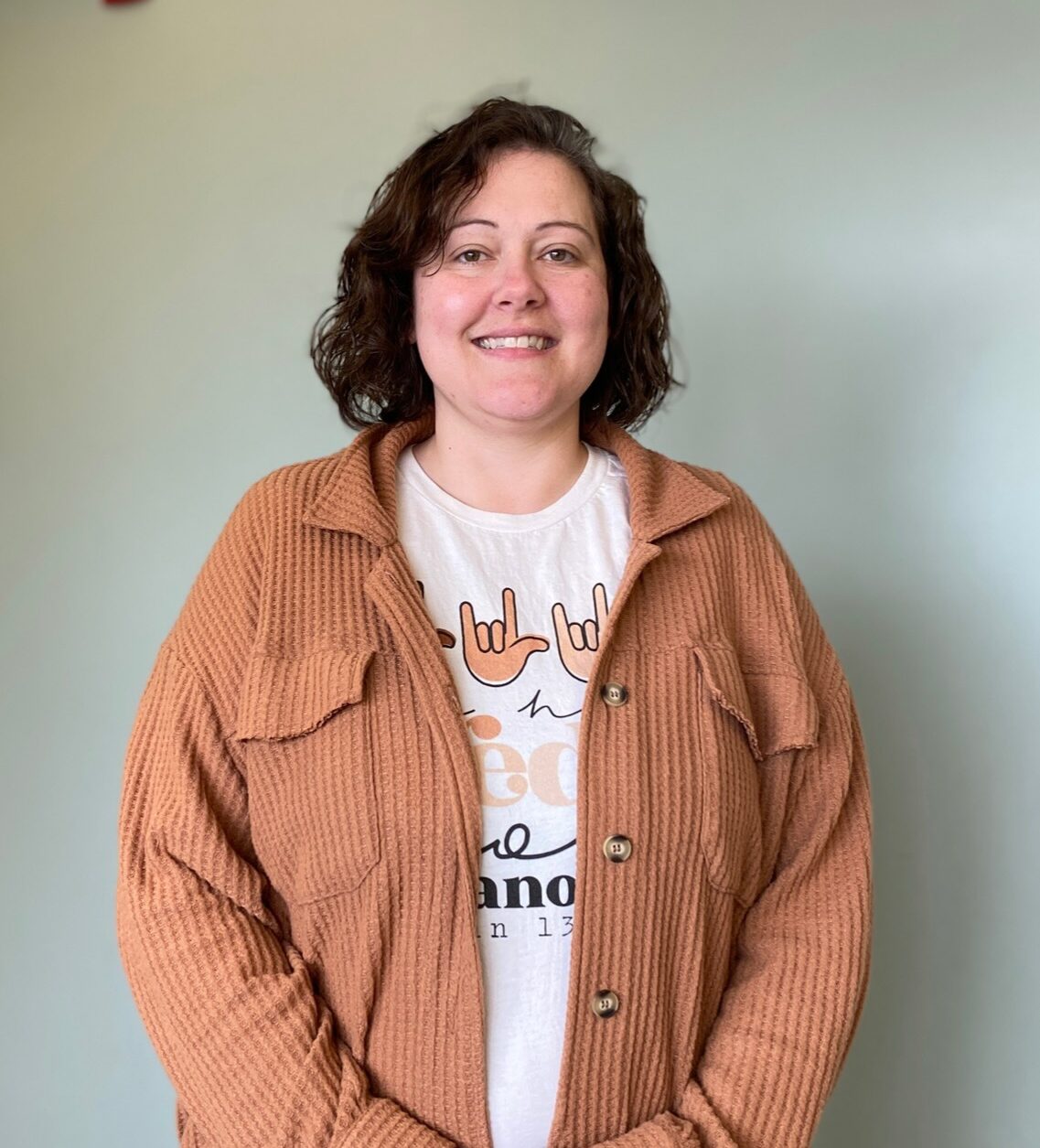
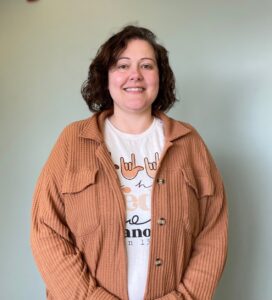 Emmalee Bolin works as a counselor at the Recovery Center at MRHC and shares that her personal experience with addiction and recovery is what inspires her to help others.
Emmalee Bolin works as a counselor at the Recovery Center at MRHC and shares that her personal experience with addiction and recovery is what inspires her to help others.